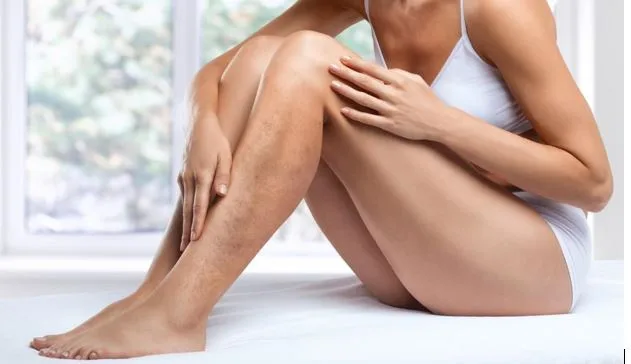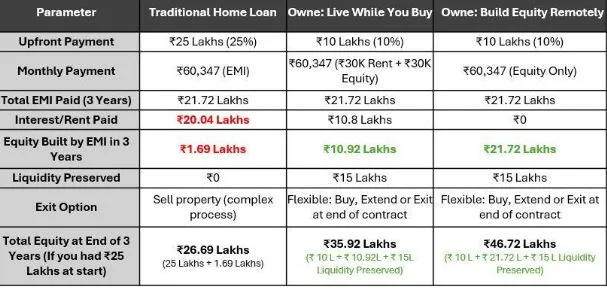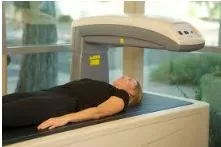How to Prevent Vein Disease Before It Starts
Vein disease can cause discomfort, pain, and even more serious complications if not addressed early. Many people assume it only affects older adults, but vein problems can develop at any age, especially if risk factors like genetics, lifestyle, or medical conditions are present. The good news is that vein disease is often preventable. By adopting healthy habits, staying active, and paying attention to early warning signs, you can protect your veins and maintain proper circulation. In this guide, we’ll share practical tips and strategies to help you keep your veins strong, healthy, and pain-free.
Understanding Vein Disease
Veins are blood vessels that carry blood back to your heart. When veins are not working properly, blood can pool in the legs, causing varicose veins, spider veins, swelling, or even chronic venous insufficiency. Common signs of vein problems include:
- Visible varicose or spider veins
- Swelling in the legs or ankles
- Leg cramps, especially at night
- Numbness, tingling, or restless legs
- Pain or heaviness in the legs
Preventing vein disease is easier when you understand the factors that contribute to it.
Common Causes of Vein Problems
Several factors increase your risk of developing vein disease. Some of these you can control, and others you cannot.
1. Genetics and Family History
If your parents or grandparents had vein problems, your risk is higher. While you cannot change your genetics, being aware allows you to take preventive steps early.
2. Age and Hormones
Vein walls and valves weaken with age. Hormonal changes, particularly during pregnancy or menopause, can also affect vein health.
3. Lifestyle Factors
Sedentary habits, long periods of standing, and being overweight put extra pressure on your veins. Poor diet and lack of exercise can increase the likelihood of vein problems.
4. Medical Conditions
Certain medical issues, such as diabetes, high blood pressure, and blood clots, can impact vein health. Managing these conditions is important for prevention.
Tips to Prevent Vein Disease
Taking simple steps every day can protect your veins and prevent vein disease. Here are practical, easy-to-follow tips to keep your legs healthy and pain-free.
1. Stay Active
Regular movement improves blood flow and reduces pressure on your veins. Activities like walking, cycling, swimming, and light jogging are excellent for vein health. Avoid sitting or standing for long periods without moving.
2. Maintain a Healthy Weight
Excess weight adds pressure to your veins, particularly in the legs. Eating a balanced diet with plenty of fruits, vegetables, and whole grains, combined with exercise, helps maintain a healthy weight.
3. Avoid Prolonged Sitting or Standing
If your job requires long hours of sitting or standing, make it a habit to take breaks. Stretch your legs, walk for a few minutes, or perform simple leg exercises every hour to keep blood flowing.
4. Elevate Your Legs
When resting, elevate your legs above heart level for 10–15 minutes. This reduces pressure in your veins and helps blood return to your heart more easily.
5. Wear Compression Stockings
Compression stockings provide gentle pressure on your legs, helping blood flow back toward the heart. They are especially helpful if you have a family history of vein disease or work on your feet all day.
6. Avoid Tight Clothing
Tight clothing, particularly around your waist, thighs, or legs, can restrict blood flow. Choose loose-fitting clothing that allows your veins to work properly.
7. Hydrate and Eat Right
Drinking enough water and reducing salt intake can prevent swelling and improve circulation. Foods rich in fiber, antioxidants, and flavonoids—like berries, leafy greens, citrus, and onions—support vein health.
8. Avoid Smoking
Smoking damages blood vessels and decreases circulation, which can worsen vein problems. Quitting smoking improves overall vascular health.
When to See a Vein Specialist
Even with preventive measures, some people may still develop vein problems due to genetics, age, or medical conditions. Early detection is key to preventing complications. You should consult a vein specialist if you notice:
- Persistent leg pain, swelling, or heaviness
- Visible varicose or spider veins that cause discomfort
- Numbness, tingling, or restless legs
- Skin changes, ulcers, or discoloration on the legs
How Tristate Vein Specialists Can Help
For those living in New York, New Jersey, or Florida, Tristate Vein Specialists offers expert care to prevent and treat vein disease. Led by Dr. Aron Rovner, their team focuses on finding the root cause of vein issues and providing lasting relief.
Comprehensive Approach
Tristate Vein Specialists treat more than just the symptoms. They develop personalized treatment plans that focus on improving blood flow and preventing future vein problems.
Transparent Communication
Their team ensures clear communication, explaining each step of your treatment and progress. You will always understand your options and feel confident in your care.
Advanced Techniques
Using the latest minimally invasive techniques, Tristate Vein Specialists provide effective results with reduced downtime and discomfort. Treatments include:
- Varithena: A non-surgical foam treatment for varicose veins.
- Vein Ablation: Heat therapy that closes problematic veins.
- Sclerotherapy: Injection therapy to reroute blood from spider veins.
- Phlebectomy: Removal of varicose veins through tiny incisions.
- VenaSeal: Medical adhesive to seal veins quickly and safely.
- Compression Therapy: Custom-fitted garments to improve circulation.
- Blood Flow Mapping: Ultrasound technology to guide effective treatment.
Tristate Vein Specialists also treat conditions such as leg cramps, restless legs, numbness, chronic venous insufficiency, and diabetic leg pain. Their focus on comprehensive care ensures long-term vein health.
Lifestyle Choices to Support Vein Health
Even after seeing a vein specialist, your daily habits play a vital role in keeping veins healthy. Here are some practical lifestyle choices:
- Walk after meals to stimulate blood flow
- Avoid crossing your legs while sitting for long periods
- Use a footrest if sitting at a desk for extended hours
- Include leg-strengthening exercises like calf raises or squats
- Practice mindfulness or stress reduction techniques to lower blood pressure
By combining professional care with healthy habits, you can significantly reduce your risk of vein disease.
Early Detection Matters
The sooner vein problems are detected, the easier they are to manage. Regular checkups with a vein specialist can identify early signs of venous insufficiency or varicose veins. Early treatment often means less invasive procedures and faster recovery.
Tristate Vein Specialists encourage patients to schedule consultations even if symptoms are mild. Their team of experienced vein doctors, led by Dr. Aron Rovner, provides assessments that include blood flow mapping and personalized treatment planning, ensuring the best results for long-term vein health.
Simple Daily Tips for Vein Care
Here are some small daily habits that make a big difference:
- Stretch your legs multiple times a day
- Walk at least 30 minutes daily
- Drink plenty of water
- Avoid high heels for long periods
- Use compression stockings if prone to swelling
- Eat a diet rich in vegetables, fruits, and whole grains
- Maintain a healthy body weight
Consistency is key. These habits strengthen your veins and reduce the risk of developing chronic vein disease.
Conclusion
Preventing vein disease is possible with the right habits, early detection, and professional guidance. If you live in New York, New Jersey, or Florida, consulting with Tristate Vein Specialists is an excellent step. With over 25 years of experience, Dr. Aron Rovner and his team offer compassionate care, advanced treatments, and a personalized approach to ensure your veins stay healthy. Stop waiting for symptoms to worsen. Book a consultation at Tristate Vein Specialists today and take the first step toward stronger, healthier legs. Your veins deserve care before problems begin, and expert guidance can help you stay ahead of vein disease.





